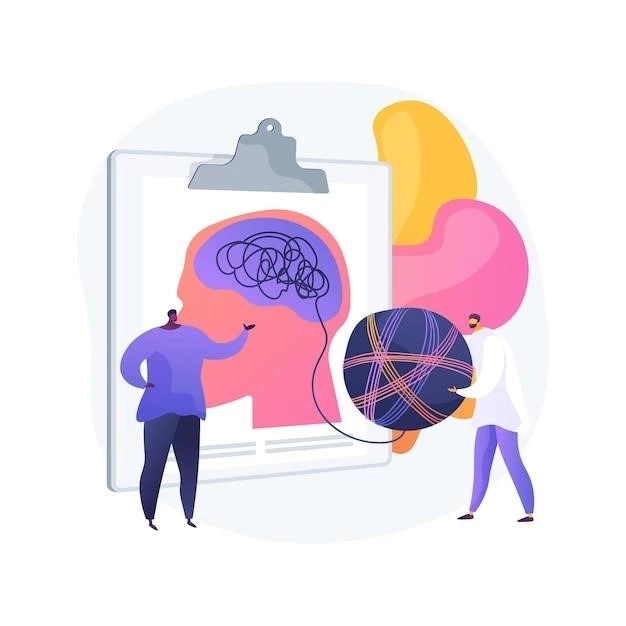Disease, Logic Syndrome
Introduction
Welcome to the comprehensive guide on Logic Syndrome, a cognitive disorder characterized by reasoning impairment and logical thinking dysfunction. Logic Syndrome falls under the umbrella of psychiatric disorders stemming from neurological dysfunction, affecting the individual’s thought process and leading to a syndrome that challenges their logical reasoning capabilities. This article delves deep into understanding the causes, symptoms, diagnosis, treatment, management, living strategies, and current research on Logic Syndrome.
Individuals with Logic Syndrome often face challenges in everyday scenarios where logical thinking is crucial, impacting their decision-making and problem-solving abilities. It can significantly affect their quality of life and relationships. By exploring the intricacies of this condition, we aim to shed light on its complexities, enhance awareness, and provide support for individuals navigating the realm of cognitive disorders.
Understanding Logic Syndrome
Logic Syndrome is a neurological disorder characterized by a profound impairment in logical thinking and reasoning abilities. Individuals with this syndrome experience difficulties in processing information cohesively, leading to disruptions in their ability to make sound judgments based on logical deductions. This condition hampers their cognitive functions, affecting their problem-solving skills and overall decision-making processes.
The underlying mechanisms of Logic Syndrome involve disruptions in the neural pathways responsible for processing logical information in the brain. This disorder can manifest in various forms, ranging from mild reasoning impairments to severe logical thinking dysfunction. Understanding the intricate interplay between neurological functions and cognitive abilities is crucial in deciphering the complexities of this syndrome.
Logic Syndrome poses substantial challenges for individuals as they navigate through daily tasks that demand logical reasoning and critical thinking. By delving into the nuances of this condition, researchers and healthcare professionals strive to develop comprehensive strategies to enhance the quality of life for those affected by Logic Syndrome. Through a deeper understanding of the nature of this cognitive disorder, we can pave the way for innovative approaches to support individuals grappling with logical thinking impairments.
Causes of Logic Syndrome
The etiology of Logic Syndrome is multifaceted, with a combination of genetic, environmental, and neurobiological factors playing significant roles in its development. Genetic predispositions can contribute to an individual’s susceptibility to cognitive disorders, including Logic Syndrome. Variations in specific genes involved in cognitive functions and logical reasoning processes may increase the risk of developing this syndrome.
Environmental factors such as exposure to toxins, traumatic brain injuries, chronic stress, and inadequate cognitive stimulation can also impact the development of Logic Syndrome. Neurobiological abnormalities in regions of the brain responsible for logical reasoning, problem-solving, and decision-making processes can lead to the manifestation of this cognitive disorder.
Furthermore, disruptions in neurotransmitter systems, such as dopamine and serotonin, which play crucial roles in regulating cognitive functions, may contribute to the onset of Logic Syndrome. Imbalances in these neurotransmitters can affect information processing and communication between brain cells, leading to cognitive impairments associated with logical thinking dysfunction.
Symptoms and Diagnosis
The symptoms of Logic Syndrome encompass a range of cognitive and behavioral manifestations that indicate impairments in logical reasoning and decision-making abilities. Individuals affected by this syndrome may exhibit challenges in understanding cause-and-effect relationships, difficulties in recognizing patterns, and struggles in drawing logical conclusions from information presented to them.
Diagnosing Logic Syndrome involves comprehensive cognitive assessments, neurological examinations, and psychological evaluations to assess the individual’s reasoning capabilities, problem-solving skills, and overall cognitive functioning. Healthcare professionals utilize standardized tests, observational analyses, and neuroimaging techniques to detect abnormalities in logical thinking processes and identify the presence of this cognitive disorder.
Common diagnostic criteria for Logic Syndrome include persistent difficulties in applying logical principles, inadequate problem-solving strategies, and challenges in following sequential reasoning tasks. It is essential for clinicians to conduct a thorough evaluation to differentiate Logic Syndrome from other cognitive disorders or psychiatric conditions that may present with similar symptoms but have distinct underlying mechanisms and treatment approaches.
Treatment and Management
The treatment and management of Logic Syndrome aim to address the cognitive and behavioral challenges associated with logical thinking dysfunction. A multidisciplinary approach involving psychiatrists, neurologists, cognitive therapists, and other healthcare professionals is essential in developing personalized treatment plans for individuals with this syndrome.
Psychopharmacological interventions may be considered to target neurotransmitter imbalances that contribute to cognitive impairments in Logic Syndrome. Medications that modulate dopamine, serotonin, or other key neurotransmitters involved in cognitive functions can help alleviate symptoms and improve logical reasoning abilities.
Cognitive-behavioral therapy (CBT) and other forms of psychotherapy are beneficial in assisting individuals with Logic Syndrome in enhancing their problem-solving skills, critical thinking, and decision-making processes. Therapeutic interventions focus on improving cognitive strategies, promoting logical reasoning techniques, and enhancing adaptive behaviors to navigate daily challenges effectively.
Furthermore, lifestyle modifications, including cognitive enhancement activities, mental stimulation exercises, and dietary adjustments, can complement treatment approaches for Logic Syndrome. Creating a supportive environment that fosters cognitive development and provides opportunities for individuals to practice logical thinking skills is integral to the overall management of this cognitive disorder.
Living with Logic Syndrome
Adapting to life with Logic Syndrome involves implementing strategies to navigate challenges posed by reasoning impairments and logical thinking dysfunction. Individuals diagnosed with this cognitive disorder may benefit from creating structured routines, utilizing visual aids for decision-making, and seeking support from family, friends, and healthcare professionals.
Developing coping mechanisms to address cognitive deficits and enhance logical reasoning skills is crucial for effectively managing daily tasks and responsibilities. Engaging in activities that promote cognitive stimulation, such as puzzles, brain games, and memory exercises, can help individuals with Logic Syndrome improve their cognitive functions and maintain mental agility.
Educating oneself about the nature of Logic Syndrome, understanding personal limitations, and advocating for appropriate accommodations in academic or occupational settings can empower individuals to thrive despite the challenges posed by this cognitive disorder. Embracing a positive attitude, seeking social connections, and fostering a supportive network can significantly impact the well-being and quality of life for individuals living with Logic Syndrome.
Research and Future Directions
Ongoing research in the field of Logic Syndrome focuses on unraveling the underlying mechanisms of logical thinking dysfunction and exploring innovative treatment modalities to improve cognitive outcomes for affected individuals. Scientists are investigating the intricate neural pathways involved in logical reasoning and decision-making processes to gain insights into the pathophysiology of this cognitive disorder.
Future directions in Logic Syndrome research emphasize the development of targeted interventions that enhance logical thinking abilities, cognitive flexibility, and problem-solving skills. Novel therapeutic approaches, including neurostimulation techniques, cognitive training programs, and personalized medicine based on genetic markers, hold promise in improving the prognosis and quality of life for individuals with Logic Syndrome.

Collaborative efforts between researchers, clinicians, and advocacy groups aim to raise awareness about Logic Syndrome, reduce stigma surrounding cognitive disorders, and promote early diagnosis and intervention. By fostering a culture of understanding and support, the research community strives to propel advancements in the field of cognitive neuroscience and pave the way for more effective strategies in managing and treating Logic Syndrome in the future.
